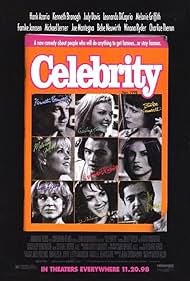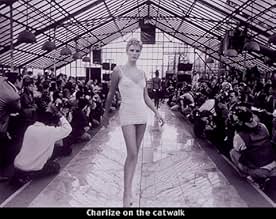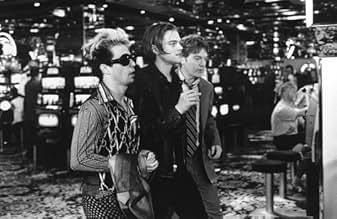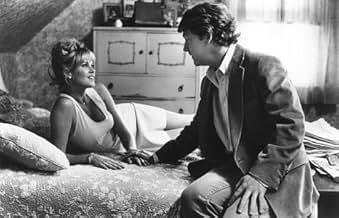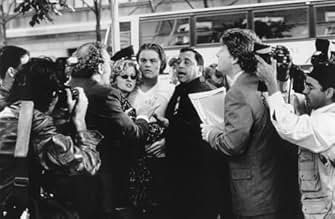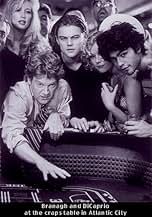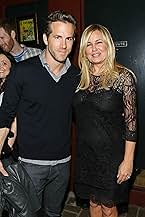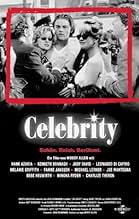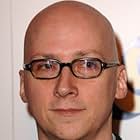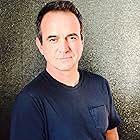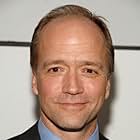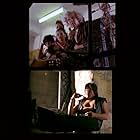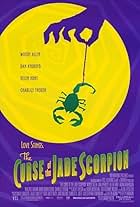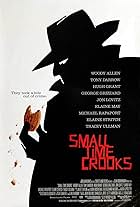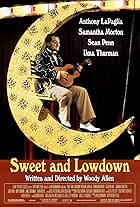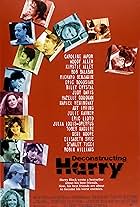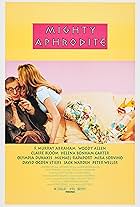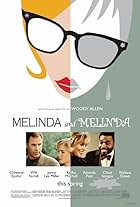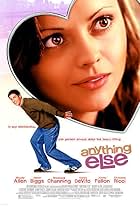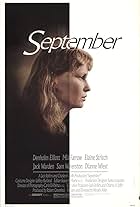The fortunes of a husband and wife differ drastically after they divorce.The fortunes of a husband and wife differ drastically after they divorce.The fortunes of a husband and wife differ drastically after they divorce.
- Awards
- 1 win & 4 nominations
Peter Castellotti
- Sound Recordist
- (as Pete Castellotti)
- Director
- Writer
- All cast & crew
- Production, box office & more at IMDbPro
Storyline
Did you know
- TriviaCinematographer Sven Nykvist had lost much of his sight at the time of filming. Allen would describe the scenes to Nykvist so Nykvist could tell Allen how each scene should look. This partially became the basis of Allen's blind director in Hollywood Ending (2002).
- GoofsDuring the dance club sequence, the band is miming to a completely different song than what is playing.
- Quotes
Robin Simon: It's luck, Lee. No matter what the shrinks or the pundits or the self-help books tell you, when it comes to love, it's luck.
- Alternate versionsThe original theatrical release is R-rated, unusual for a Woody Allen film. It was slightly edited for release in Argentina, with no significant (less than one minute) loss in runtime.
- SoundtracksYou Oughta Be in Pictures
(1934)
Music by Dana Suesse
Lyrics by Edward Heyman
Performed by Jack Little (as Little Jack Little)
Courtesy of Columbia Records by arrangement with Sony Music Licensing
Featured review
A lot of the reviews have said that this film is one of the weaker recent Woody Allen movies, but I actually thought it was his best since Husbands and Wives. It's much more subtle but every bit as scathing as Deconstructing Harry. Everyone says Woody's films just aggrandize himself, but I feel that his latest few have been exercises in self-loathing.
Certain people (in these very pages) have felt that one is supposed to sympathize with the Branagh character. Certain people, we must remember, are on crack. Branagh plays a low-life louse who gives the word narcissim a whole new meaning. He is looking to revitalize his life by entering the world of celebrities. He is contrasted with his ex-wife (the always amazing Judy Davis... who doesn't she do more films?) who is also looking to change her life, but not necessarily by becoming famous. She does become famous, and near the end she says what I think is the key line: "I've become the kind of person I've always detested, but I'm happier." My friend and I had an argument later about what the film was saying: a) that Judy has given up on seriousness and meaning by becoming a celebrity, but now she's happier, or b) that the "entertainment products" that these people turn out don't matter at all, and that if one can find personal happiness (Judy eventually becomes much more social and comfortable with people) by doing them, then that's great. I don't know, but this is a far more interesting treatise on finding happiness than the dreary "Happiness" was.
This is also the funniest Allen film in years, with two total laugh-out-loud lines which I won't spoil here.
Overall, I felt the celebrity part, and all the walk-ons we not at all the focus of this movie, it just uses that world as a backdrop. This film is also very sweet and real, with the scene in which Judy Davis visits a psychic being one of the most intimate and touching I've seen.
One last thing, it's fun to see a Woody Allen film in New York City, because you can watch the audience trying to identify all the places where the scenes are set.
--- Check out website devoted to bad and cheesy movies: www.cinemademerde.com
Certain people (in these very pages) have felt that one is supposed to sympathize with the Branagh character. Certain people, we must remember, are on crack. Branagh plays a low-life louse who gives the word narcissim a whole new meaning. He is looking to revitalize his life by entering the world of celebrities. He is contrasted with his ex-wife (the always amazing Judy Davis... who doesn't she do more films?) who is also looking to change her life, but not necessarily by becoming famous. She does become famous, and near the end she says what I think is the key line: "I've become the kind of person I've always detested, but I'm happier." My friend and I had an argument later about what the film was saying: a) that Judy has given up on seriousness and meaning by becoming a celebrity, but now she's happier, or b) that the "entertainment products" that these people turn out don't matter at all, and that if one can find personal happiness (Judy eventually becomes much more social and comfortable with people) by doing them, then that's great. I don't know, but this is a far more interesting treatise on finding happiness than the dreary "Happiness" was.
This is also the funniest Allen film in years, with two total laugh-out-loud lines which I won't spoil here.
Overall, I felt the celebrity part, and all the walk-ons we not at all the focus of this movie, it just uses that world as a backdrop. This film is also very sweet and real, with the scene in which Judy Davis visits a psychic being one of the most intimate and touching I've seen.
One last thing, it's fun to see a Woody Allen film in New York City, because you can watch the audience trying to identify all the places where the scenes are set.
--- Check out website devoted to bad and cheesy movies: www.cinemademerde.com
- How long is Celebrity?Powered by Alexa
Details
- Release date
- Country of origin
- Official site
- Language
- Also known as
- Woody Allen Fall Project 1997
- Filming locations
- Production companies
- See more company credits at IMDbPro
Box office
- Budget
- $12,000,000 (estimated)
- Gross US & Canada
- $5,078,660
- Opening weekend US & Canada
- $1,588,013
- Nov 22, 1998
- Gross worldwide
- $5,078,660
- Runtime1 hour 53 minutes
- Color
- Sound mix
- Aspect ratio
- 1.66 : 1
Contribute to this page
Suggest an edit or add missing content

